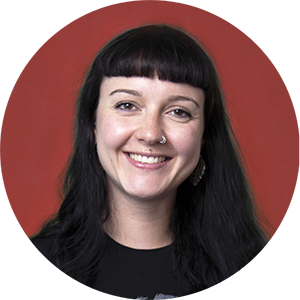2021-02-17 | Verena Stiegler | 5 min read
Scandio-Report - Scrum Edition
You’ve always wondered what a Scrum Master actually does all day and what agile working at Scandio looks like? Find out in this issue of our Scandio Report, in which our Scrum Masters answer all these questions. Anne, Aga, Vero, Joschi and Jacques form the core of our agile CoP and drive agile development at Scandio forward.
Hello, please introduce yourselves briefly - who are you, what do you do?
Jacques: We call ourselves the Agile CoP (Community of Practice). Practicing Scrum Masters and people interested in Scrum gather here to exchange ideas and learn more about agile working. The team recently grew with the addition of full-time Scrum Masters Anne and Aga and has since become a very vibrant community. We are particularly proud to often be held up as a prime example of self-organized work at Scandio. We have two full-time Scrum Master, the rest are mainly developers and take care of internal Scrum Master activities like team retros. We are also responsible for Scrum Consulting and we´re planning to hold Scrum Workshops for customers in the future.

Please describe a day in the life of a Scrum Master at Scandio.
Aga: There are rarely typical days. At least for me, I haven’t discovered a routine yet, most of it happens rather ad hoc. Most mornings, you first have to get an overview of what has accumulated overnight.
Anne: That’s the good thing about the job - every day is different. I haven’t been able to develop a routine yet either.
Aga: On the one hand, there are days like the “sprint change”-days, which are particularly work-intensive in terms of the amount of meetings and the preparations beforehand.
Anne: It’s important not to structure the entire day in advance, as often there can be spontaneous requests from clients or teams for customized Scrum workshops or meeting presentations.
What was your motivation to become a Scrum Master?
Jacques: I thought it would be exciting to take on another responsibility in the team besides just being a software developer and to have some variety in my job.
Vero: Especially if you have already worked with Scrum as a developer and notice how well it works and in the best case also had a good Scrum Master, you would like to teach that to others.
Joschi: It can just happen that you made good experiences with it as a developer and thus “slip into it”.
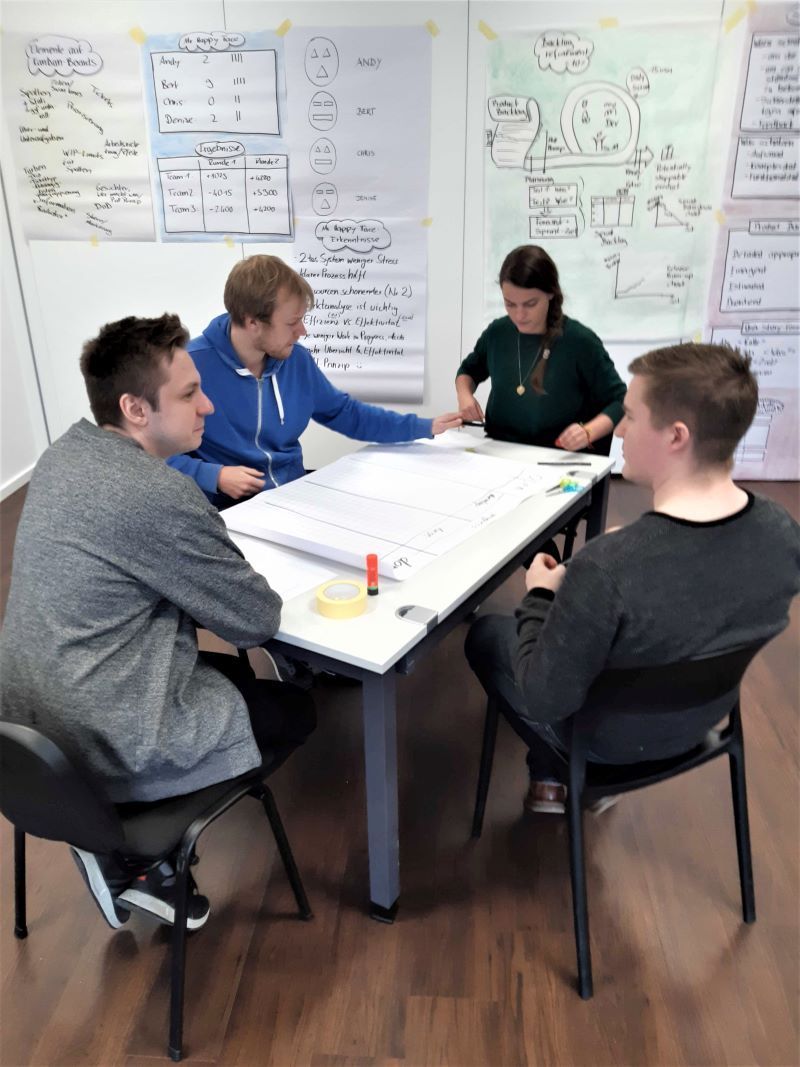
What are your backgrounds and how did you become a Scrum Master?
Aga: We all come from very different backgrounds, Anne and I don’t come from software development at all. However, since I had contact with developers in my private life during my studies, I often heard terms like Scrum Master before. I wanted to change industries for quite some time and took the Scrum certification in the course of an advanced training.
What is your opinion: should a Scrum Master know about the technical aspect or is it even better if he/she is not so deep in the matter?
Anne (laughs): I have often heard: “Opinions differ on this point”! Being the first full-time Scrum Master in Scandio without a technical background, I can say that I definitely had a lot of respect for the matter in the beginning. But I’ve never had the feeling that I’m at a disadvantage because of it. In the end, my work also depends on other aspects.
Vero: It definitely helps to be interested in IT, since you’re bound to be involved with it every day. You should roughly know what it’s all about when you work with a team for a longer period of time.
Jacques: In my opinion, other competencies and social skills, such as organization, moderation and communication, define a Scrum Master. You should also be familiar with technical tools such as Miro, especially now, as well as with the principles of agile work. But you should be interested in IT topics in any case.
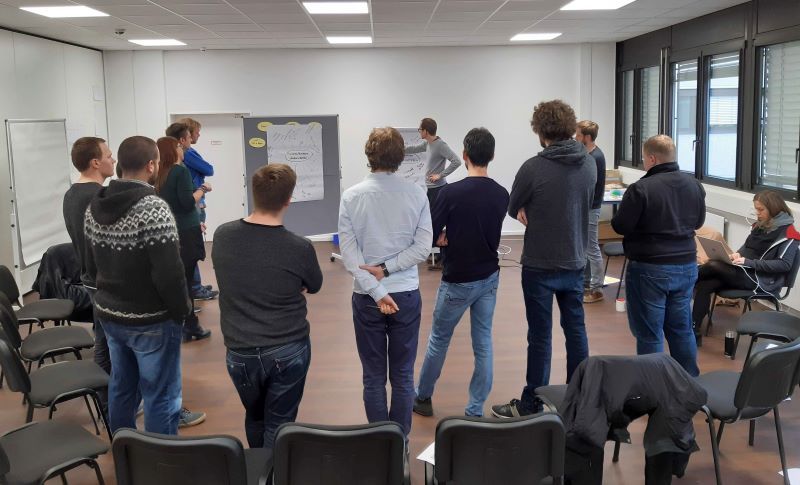
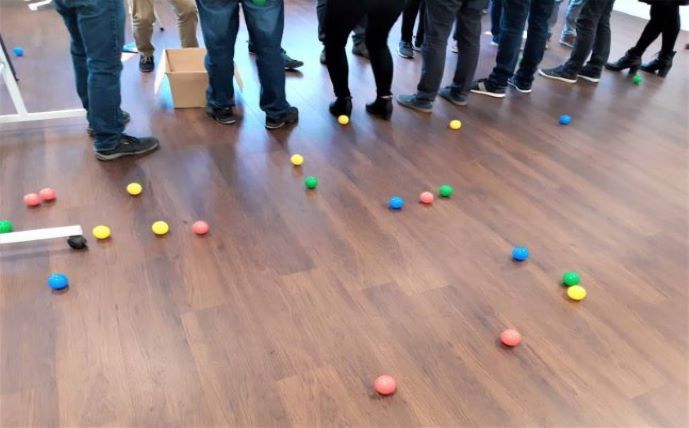
How do you beome a Scrum Master?
Vero: The most important thing is, you just do it. A first step to learn the basics is the Scrum Master certification. But you can only become a real Scrum Master if you simply practice it.
Joschi: Experience is extremely important. You have to experience the situations in the job and grow from them - just reading books won’t get you anywhere. A certificate alone does not make a good Scrum Master.
What projects are you working on at the moment?
Jacques: Joschi, Aga, Vero and I are currently working on projects running in a SAFe train. This is a kind of scaled Scrum, where Scrum teams are grouped together and work on a large project. The final product in this project is an app that allows users to connect to their smart-home devices.
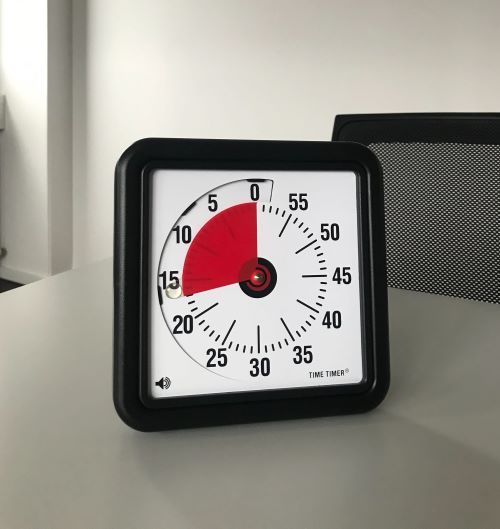
Joschi: In the Scrum environment, we are currently working on a workshop to anchor Scrum and agile working in companies where it has not been practiced before or who simply want to get help in that area.
What tools do you use?
Anne: Actually, each Scrum Master can organize the daily work routine together with the respective team in the way that suits them best. We mainly use Miro - an online whiteboard that everyone in the team can work on.
Jacques: We use Jira for issue tracking in all projects. And apart from the last few months, of course, we also use analog tools like Post Its, whiteboards and flipcharts. And the Scrum clock!
Last but not least: Tell us a funny anecdote from the life of a Scrum Master.
Aga: Our everyday life is generally very entertaining, since we also exchange ideas with each other on a regular basis. It is definitely interesting to see how different teams working with Scrum can turn out. Since there are no two teams that are the same, this sometimes leads to the one or the other anecdote.
Joschi (laughs): You often only really learn to appreciate a good Scrum Master once you’ve had a bad one.
Aga: There are teams that are very meme-affine, which then leads to meme and laugh attacks on a daily basis. That always puts us in a good mood and I’m often amazed at how spontaneously things like that can happen.
Anne: There are very open and creative teams. Often, somewhat “spicier” icebreakers in a retrospective also provide anecdotes, such as “Why don’t you tell us your Guilty Pleasure”. Some Scrum teams also work with safe-words to prevent escalation in the discussion, especially worth mentioning here are “potato salad” or “banana”.
This way to the jobs!
Scandiolife on Instagram.
Connect with us on LinkedIn.
Look what Scandio is tweeting.


